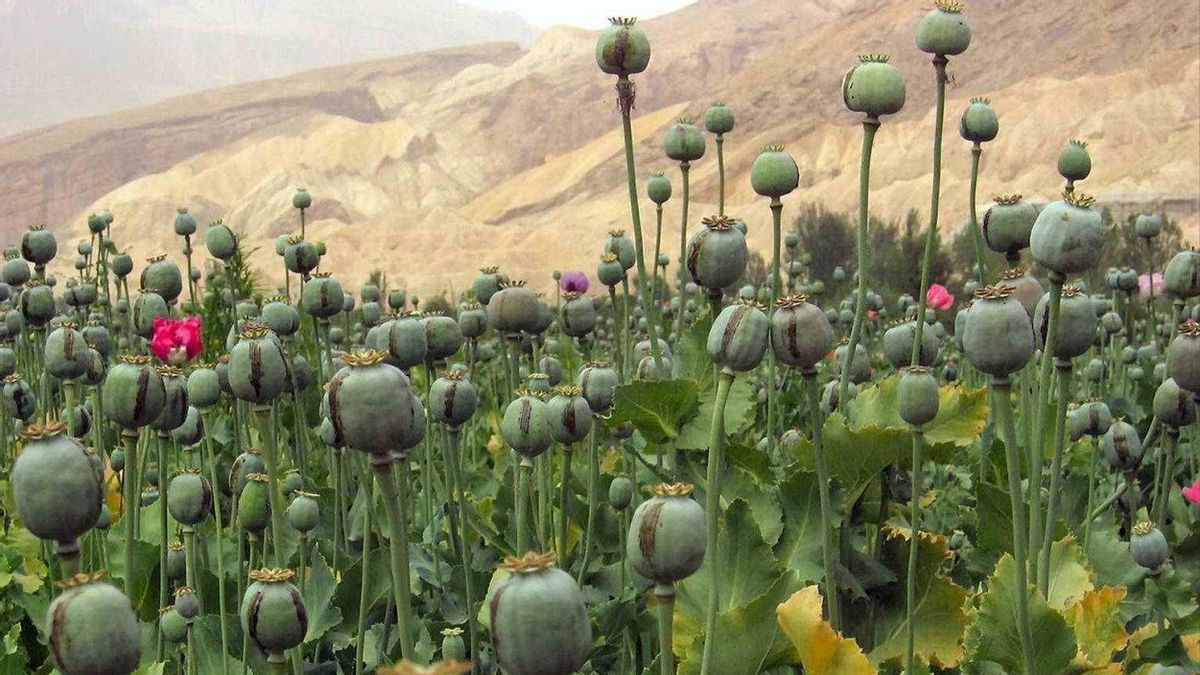JAKARTA - The UN agency related to drugs and crime (UNODC) on Sunday 5 November reported that Afghan farmers lost revenue up to US$ 1 billion or around Rp 15.5 trillion after Taliban rulers banned opium cultivation. Afghans are the world's largest producer of opium and major sources of heroin in Europe and Asia, before the Taliban seized power in August 2021. Taliban pledged to abolish the country's drug cultivation industry and impose an official ban in April 2022. This action dealt a heavy blow to hundreds of thousands of farmers and daily laborers who relied on opium harvest to survive. PBB said opium cultivation plummeted to 95% after such ban. Until 2023, Afghanistan's opiat export value often exceeded its official export value. UN officials said there was a strong contraction in the opium economy estimated to have far-reaching consequences for the country as opiat exports before ban contributed between 9-14% of the national GDP. Afganistan desperately needed strong investment in sustainable livelihoods to provide opportunities for its people away from opium, said UNODC Executive Director, Ghada Waly. Afghans are facing drought, severe economic difficulties, and the continued impact of war and natural disasters over the decades. This crisis, in conjunction with the cessation of international funding that supports the economy of ex- Western-backed government, has pushed the public into poverty, hunger, and addiction. UNODC report in September said Afghanistan is the fastest growing metamphetamine producer in the world, with the seizure of synthetic drugs increasing as opium cultivation. The latest UNODC report states, low revenue in the supply chain of opiats could increase other illegal activities such as arms trading, humans or synthetic drugs.
The English, Chinese, Japanese, Arabic, and French versions are automatically generated by the AI. So there may still be inaccuracies in translating, please always see Indonesian as our main language. (system supported by DigitalSiber.id)








